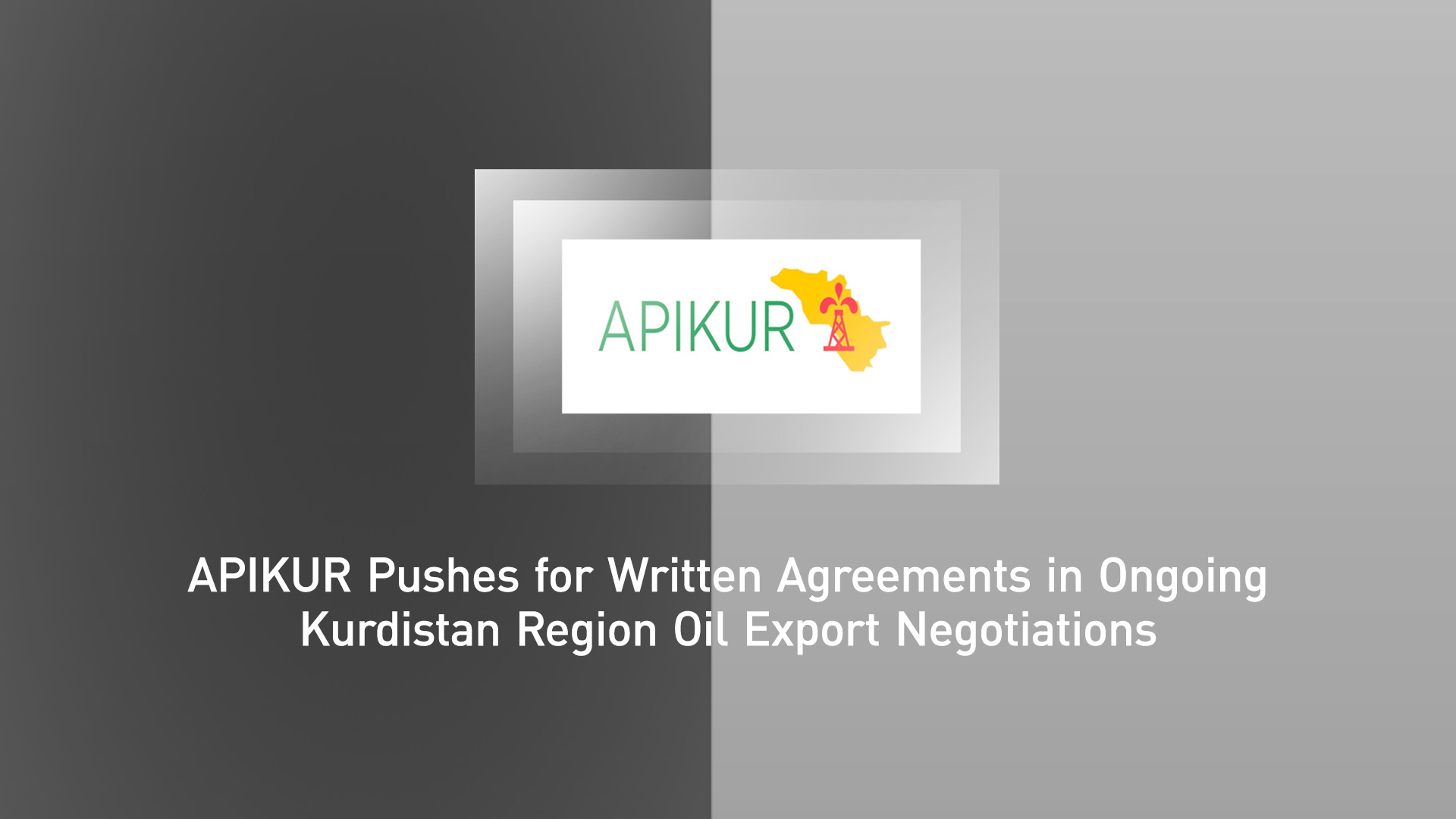APIKUR Pushes for Written Agreements in Ongoing Kurdistan Region Oil Export Negotiations
The meeting, held on April 20, focused on the necessary conditions to restart oil flows that have been suspended for over a year. While all sides presented their positions on a range of technical and legal matters, no final agreements were reached.

ERBIL (Kurdistan24) — Member companies of the Association of the Petroleum Industry of Kurdistan (APIKUR) reiterated their call for formal written agreements during the latest round of discussions with Iraqi and Kurdistan Regional Government (KRG) officials over the resumption of oil exports via the Iraq-Turkey pipeline.
The meeting, held on April 20, focused on the necessary conditions to restart oil flows that have been suspended for over a year. While all sides presented their positions on a range of technical and legal matters, no final agreements were reached.
APIKUR member companies emphasized the need for fair implementation of Iraq’s federal budget law, especially regarding the role and responsibilities of an independent consultant tasked with overseeing oil production and exports. They also stressed that any future arrangements must not infringe on existing contracts with international oil companies (IOCs), which have been upheld by Iraqi courts.
Crucially, APIKUR is seeking written agreements that provide clear guarantees on payment terms and the settlement of outstanding arrears. According to a statement from the organization, the member companies "did not receive satisfactory assurances" on these key issues during Saturday's meeting.
In an effort to move the talks forward, several APIKUR members have submitted draft sales and lifting agreements, along with detailed recommendations for the independent consultant’s scope of work, to both KRG and federal Iraqi officials.
Despite the lack of immediate progress, APIKUR reaffirmed its readiness to resume exports—contingent on securing signed agreements that protect the fiscal and economic terms of their existing contracts.
The talks come amid growing pressure to resolve the impasse, which has had significant financial implications for both the federal and regional governments, as well as oil companies operating in the Kurdistan Region.
